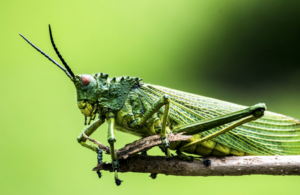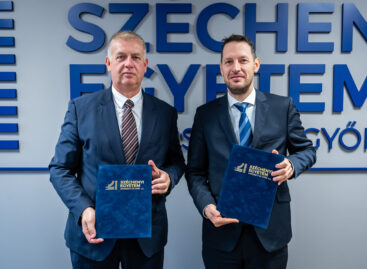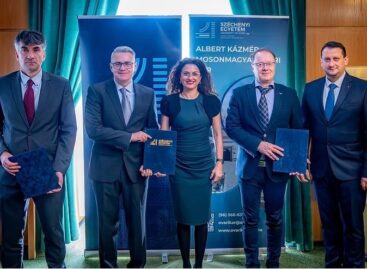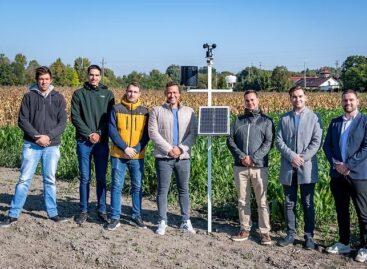The cooperation between Agroloop and István Széchenyi University can open new horizons in the insect market
Healthy pet food raw materials and organic soil improvement products produced from black soldier fly larvae have brought revolutionary new, sustainable solutions in many areas of domestic agriculture. Agroloop and the István Széchenyi University of Győr have signed a memorandum of understanding, which can open new doors for the feed insect market. In addition to scientific research, they mutually support each other in other areas as well: not only do they develop a common approach to sustainability, but the industrial-agricultural utilization and expansion of the knowledge generated in the academic sphere is also a set goal, it was announced at the signing of the agreement.
 European protein exposure is an increasingly urgent problem in the agricultural sector: a quarter of the world’s meat production is used in the feed of domestic animals, while 75 percent of global arable crop production is for animal feed. To solve this, Agroloop offers an environmentally friendly alternative: it uses feed-grade by-products from local food processors to feed the larvae, which transform the low-value biomass into high-quality feed protein and fat.
European protein exposure is an increasingly urgent problem in the agricultural sector: a quarter of the world’s meat production is used in the feed of domestic animals, while 75 percent of global arable crop production is for animal feed. To solve this, Agroloop offers an environmentally friendly alternative: it uses feed-grade by-products from local food processors to feed the larvae, which transform the low-value biomass into high-quality feed protein and fat.
Agroloop’s larval breeding and feed raw material production activities opened up a completely new industry in agriculture. This is raised to a higher level by the agreement concluded with István Széchenyi University, the purpose of which is the joint research and development of insect-based solutions, as well as the general expansion and utilization of related knowledge. The initial basis of the cooperation is sustainability, which is given special focus in the operations of both parties. The Széchenyi István University considers sustainable development to be of strategic importance, which is clearly shown by the fact that the institution was ranked among the 400 best universities in the world in the “sustainable cities and communities” category in the Times Higher Education ranking based on sustainability goals. The expected impact of joint projects will be reflected not only in more environmentally friendly agricultural practices, but also in domestic and international scientific and professional activities.
Related news
Related news
Lidl launches campaign with tennis star Steffi Graf
🎧 Hallgasd a cikket: Lejátszás Szünet Folytatás Leállítás Nyelv: Auto…
Read more >Coca-Cola To Discontinue Frozen Products In US And Canada
🎧 Hallgasd a cikket: Lejátszás Szünet Folytatás Leállítás Nyelv: Auto…
Read more >








